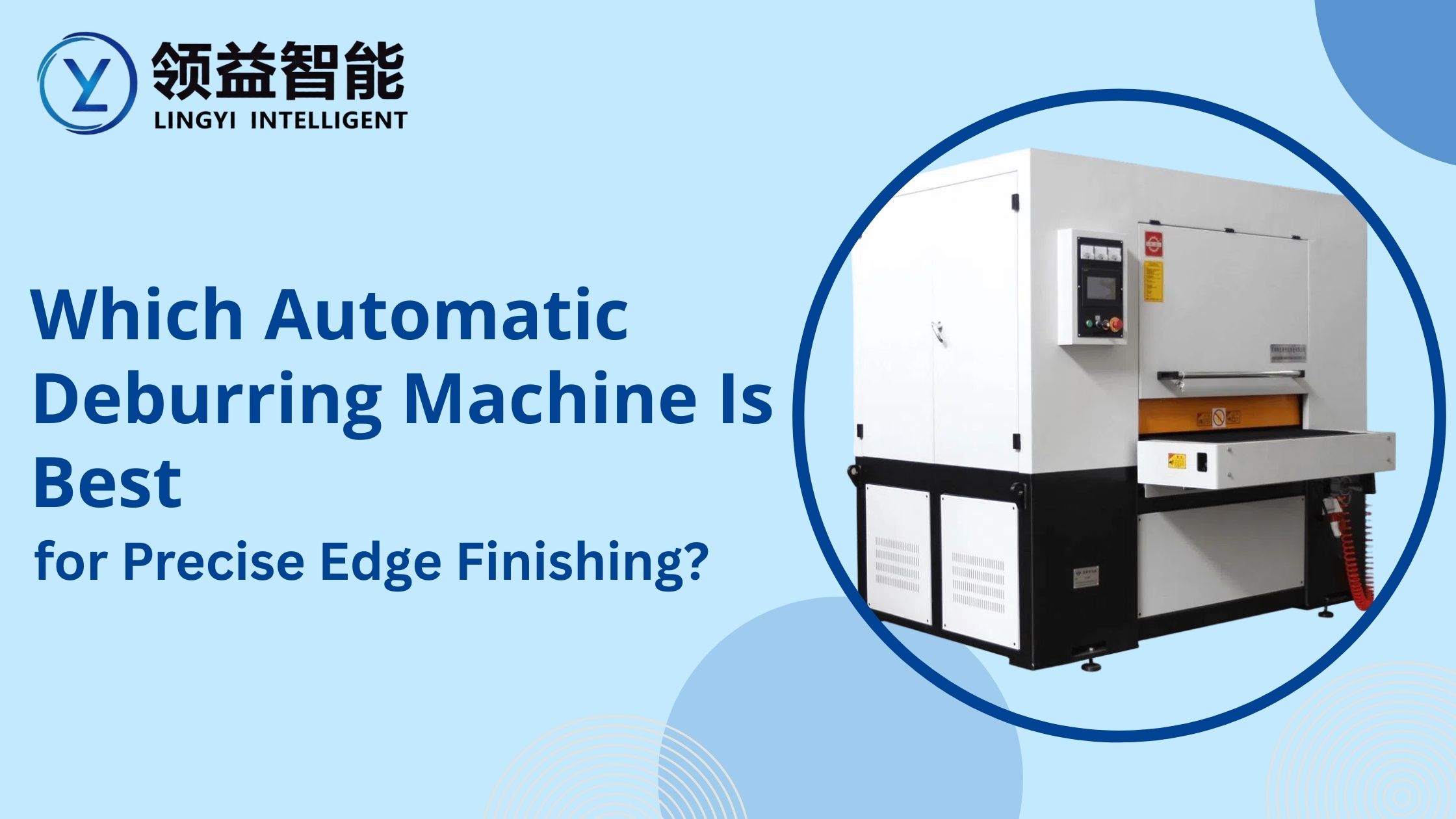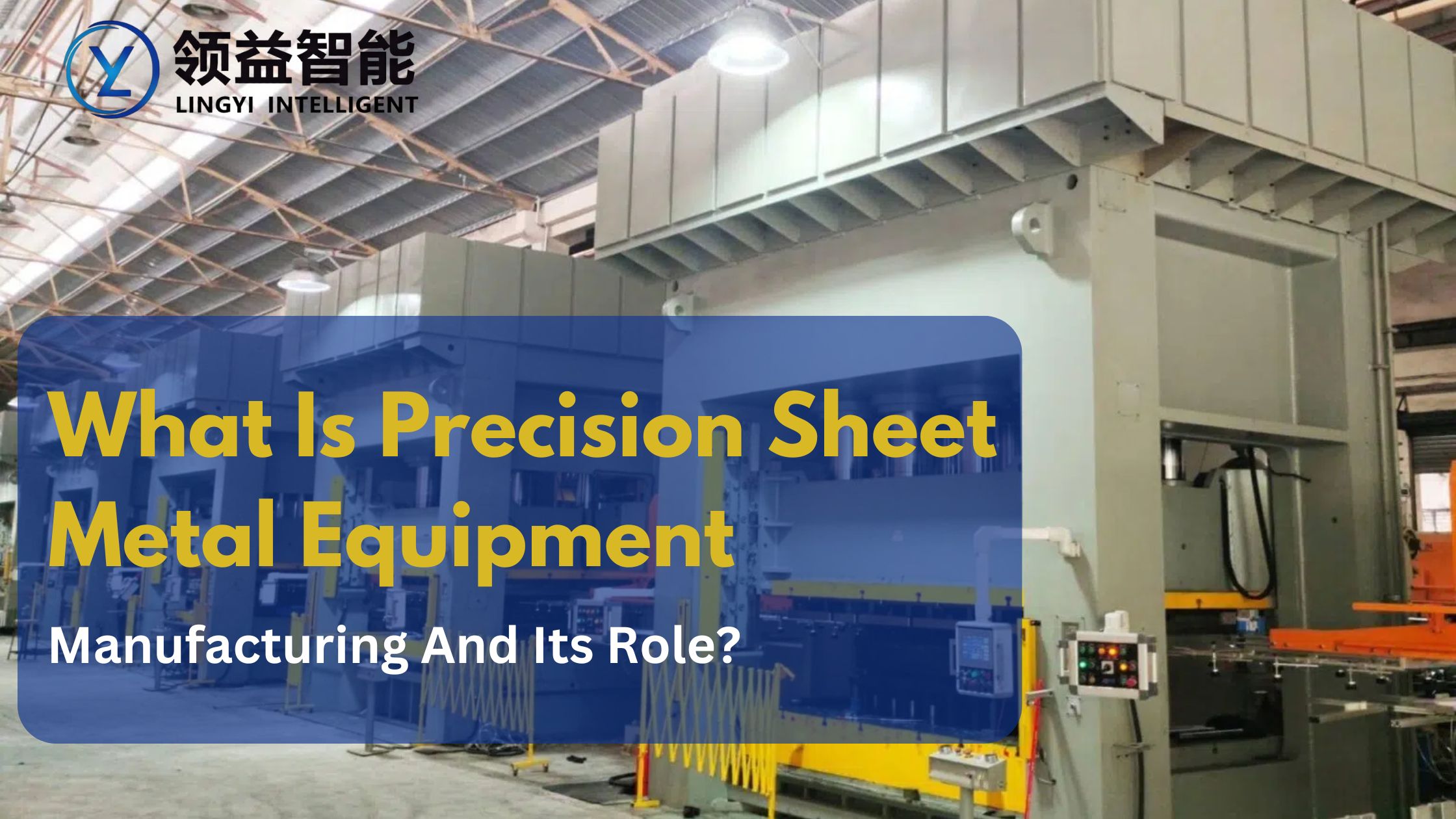
Top Benefits of Using Automatic Manufacturing Machines in Industry
In the modern industrial landscape, staying competitive means embracing smarter, faster, and more efficient methods of manufacturing. At Lingyi Engineering Group, we understand the growing demand for automation in today’s dynamic market. That’s why we’re at the forefront of supplying advanced automatic manufacturing machines, precision solutions, and a broad range of engineering services to global industries. From Precision Parts Manufacturing to high-end automation systems, we’re dedicated to transforming traditional production lines into streamlined, intelligent operations.
Whether your focus is on enhancing performance through a Deburring machine, achieving smoother finishes with a sheet leveling machine, or implementing a precision leveler, we deliver innovative tools to improve accuracy and reduce manual workload. With years of experience in exporting cutting-edge precision manufacturing technology, our goal is to help you achieve greater productivity and long-term success.
What Are Automatic Manufacturing Machines?
Automatic manufacturing machines are mechanical or digital systems designed to handle repetitive tasks with minimal human intervention. These machines often feature advanced software, robotic arms, sensors, and CNC precision equipment to complete processes such as cutting, shaping, assembling, and inspecting materials or components with extreme accuracy.
These machines are commonly used in industries such as automotive, electronics, aerospace, medical devices, and heavy machinery—anywhere consistent quality and high throughput are required.
Why Automation Matters More Than Ever?
Modern industrial production demands faster turnaround, cost control, and consistent product quality. Automation answers all these needs in a scalable way. A study by McKinsey & Company found that automated systems can boost productivity by up to 30% while significantly reducing error rates.
Additionally, with the labor market facing shortages in skilled workers across manufacturing sectors, automation helps bridge the talent gap by taking over repetitive or hazardous jobs, allowing human workers to focus on higher-value tasks.
Key Benefits of Using Automatic Manufacturing Machines
1. Increased Production Speed
One of the most immediate benefits of automatic manufacturing machines is speed. Unlike manual labor, these machines can operate 24/7 without breaks, holidays, or downtime. This means more units can be produced in less time, translating directly into higher profits.
For example, CNC machines used in Precision manufacturing technology can produce hundreds of components per hour with millimeter-level accuracy.
2. Enhanced Accuracy and Consistency
In precision industries, even the smallest deviation can result in product failure. Precision manufacturing equipment, such as CNC mills, robotic arms, and laser cutters, offers a level of consistency that human labor cannot match. Every piece created is identical to the last, reducing waste and improving product reliability.
This benefit is especially critical in sectors such as medical device manufacturing or aerospace, where precision is non-negotiable.
3. Reduction in Operational Costs
Although automation requires upfront investment, the long-term savings are substantial. Fewer errors mean less waste. Faster production means more units are sold in a shorter period of time. And most importantly, automation reduces the need for a large labor force, significantly cutting payroll expenses.
According to Deloitte, manufacturers using automated systems reduce labor costs by an average of 20% over five years.
4. Safety Improvements
Machines can be programmed to handle dangerous tasks, such as operating in high-temperature environments or dealing with toxic substances. This significantly reduces the risk of workplace injuries, improves worker satisfaction, and protects your business from costly lawsuits and insurance premiums.
For example, deburring machines take over the hazardous task of removing burrs from metal parts, tasks traditionally done by hand using sharp tools.
5. Higher Product Quality
Advanced sensors and AI-integrated systems used in automatic manufacturing machines help in real-time monitoring of defects, ensuring that sub-standard items are identified and rejected before reaching customers. This drastically improves customer satisfaction and enhances your brand reputation.
6. Greater Flexibility in Manufacturing
With advancements in CNC precision equipment and automation software, manufacturers can now switch from one product line to another with just a few adjustments. This is especially useful in industries where product demand changes frequently.
This flexibility also makes customization more viable without the time-consuming reconfiguration associated with traditional manufacturing.
7. Data-Driven Insights and Process Control
Smart machines are not just about doing the work—they’re also about learning from it. With integrated data collection and analysis, companies gain deep insights into production cycles, machine performance, and quality metrics.
This enables better decision-making, predictive maintenance, and process optimization—all from a central dashboard.
How Lingyi Engineering Group Drives the Future of Automation?
We’re not just selling machines—we’re offering tailored automation solutions. We understand that every business has unique needs, and our team of experts works closely with clients to design systems that align with their goals and production challenges.
Our commitment to innovation in precision manufacturing technology ensures that our customers stay ahead of their competition. Whether you need sheet leveling machines, precision levelers, or CNC precision equipment, our solutions are engineered for excellence.
Real-World Applications
Here are a few real-world ways automatic manufacturing machines are transforming industry practices:
Automotive: Automated robots assemble engine components, apply paint, and perform quality checks at speeds no human could match.
Electronics: Pick-and-place robots install microchips onto circuit boards with extreme accuracy.
Aerospace: CNC machines manufacture aircraft components from titanium and carbon fiber to precision specs.
These use cases highlight how precision tools and equipment lead to better products, faster turnaround, and happier customers.
Challenges to Consider (And How to Overcome Them)
Of course, automation isn’t without its challenges. Some concerns include:
High Initial Costs: While upfront costs can be steep, ROI is often achieved within a few years through increased efficiency and reduced labor.
Training and Upgrades: Staff must be trained to operate and maintain equipment. Lingyi offers comprehensive training and ongoing support.
Requirements: Machines require regular maintenance. That’s why we provide service contracts and warranties to give you peace of mind.
Looking Forward with Confidence
The manufacturing landscape is evolving rapidly, and staying ahead means embracing smart, efficient technologies. With us as your automation partner, you gain more than just equipment—you gain a long-term ally in innovation, efficiency, and business growth.
As industries worldwide shift towards precision and automation, investing in automatic manufacturing machines is not just an upgrade—it’s a strategic move. Let us help you design a future where productivity thrives, safety improves, and your operations are more resilient than ever.
Let’s Build the Future Together
If you’re ready to upgrade your production line with high-quality precision manufacturing equipment or want to explore how automatic manufacturing machines can benefit your business, Lingyi Engineering Group is here to help.
Contact us today for a free consultation and discover how we can engineer smarter, faster, and more profitable solutions—together.
Key Takeaways:
Automatic manufacturing machines significantly increase productivity, accuracy, and safety in industrial operations.
Businesses using precision manufacturing equipment experience fewer errors, lower costs, and improved product quality.
Lingyi Engineering Group offers top-tier CNC precision equipment, deburring machines, and sheet leveling machines specifically tailored to meet your needs.
Real-time data and flexible machine configurations make automation more efficient and adaptable than ever before.
Upfront investments in automation yield long-term savings and competitiveness.
Frequently Asked Questions
Q1. What is precision manufacturing technology?
It involves advanced tools and machines used to create highly accurate and detailed parts, often for critical industries like aerospace and medical.
Q2. What is precision machining technology?
A process that uses CNC machines to shape materials with tight tolerances for precise results.
Q3. What are the techniques of precision manufacturing?
Techniques include CNC milling, turning, grinding, laser cutting, and 3D printing.
Q4. What is the precision manufacturing process?
It starts with a digital design and uses high-precision tools to shape, finish, and inspect the final product.



